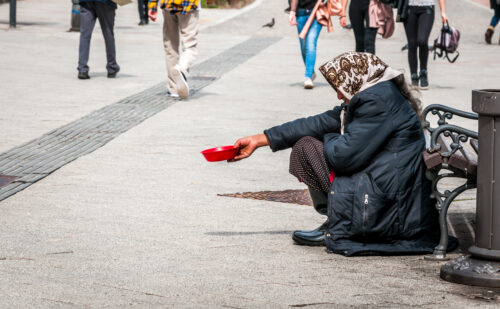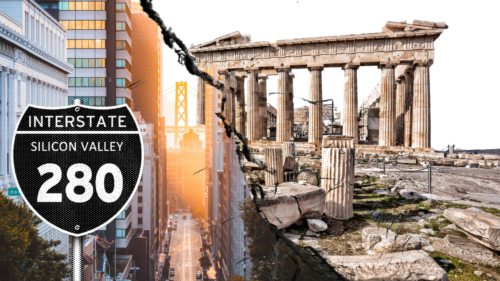Usury has the unintended consequence of making money unproductive and directed towards the wealthy. Nonprofit organizations should oppose usury while promoting a vibrant marketplace.
Usury is the forgotten sin of the Christian tradition. Ask an educated person about usury, and they will probably tell you that centuries ago, folks did not understand economics that well, and they thought it was sinful to collect interest on money lent. They did not understand that lending benefits both lessor and debtor, unlocking potential, and opening up opportunity. Today, financing allows millions to purchase homes they otherwise could not afford, start businesses they otherwise could not launch, and educate kids they otherwise could not educate. We pay a little bit at a time for a long time instead of a whole lot now, immediately enjoying the fruits of a purchase which might take decades to save for. The lender unlocks value and deserves the compensation of interest for the service provided and the risk undertaken. If there really is anything called usury, maybe it exists in payday lending or some other form of high-interest debt that takes advantage of the immediate needs of the poor and captures them in a difficult-to-break cycle of indebtedness and compounding interest.
But it is worth paying a little bit more attention to one of the critiques of usury from the classical tradition: usury eventually paralyzes an economy. It is not individuals or institutions with accumulated wealth that need to take out loans, but the poor and middle class. Conversely, it is not the poor and middle class who make loans and charge interest, but those with money already accumulated. When loans are made to consumers, therefore, the general movement of money in society is upward, away from the poor and middle class to those who are already wealthy. Paying interest means, effectively, paying more for an object than it costs, often many times over. This process saps the borrower of wealth. Over a lifetime, a person who uses debt to purchase things has spent more money than the actual worth of their possessions, as if they had paid $9.99 for a gallon of milk every week, even though it sells for $4.99. In other words, they have become poorer.
When an economy is based on high levels of debt and interest, the savings and spending power of the middle class and upper middle class as a whole diminishes, as more and more of their wealth goes not to productive assets, but to interest obligations. For every thousand dollars of interest paid, that means a thousand dollars not spent to purchase a car, start a productive business, invest in a successful company, or further one’s education. More importantly, it means money is not circulating actively and dynamically in a vibrant economy to create productive jobs. As the upper-middle class has less to spend and becomes the middle class, as the middle class has less to spend and becomes poor, the economy eventually comes to a standstill, with all of the potential for productive spending in the hands of fewer and fewer individuals and institutions.
At first blush, this is not at all an absurd argument. In response it may be said that the wealthy do not hoard their wealth, but start companies and such, creating an immense number of jobs. But even large companies need consumers with some spending power. When the American consumer has spent years using credit cards, mortgages, and other forms of financing to purchase and slowly pay off their many expenses, eventually the reality of debt and high monthly interest obligations takes its toll. When we have spent too much, we tap the breaks. When many people do so simultaneously, we call it a recession. When millions have no choice but to do so, we call it economic collapse.
In today’s marketplace of think tanks, in which so much philanthropic wealth goes to supporting free-market ideas, we could do worse than push for a recovery of the concept of usury. If we are serious about a vibrant economy, one that remains in motion, then we must be serious about creating a society in which the average American has enough to spend and a little leftover to save for bigger purchases. One way to do so would be to address the problem of usury and redirect the trillions that will be spent unproductively on interest towards creating and patronizing productive, job-producing businesses.
Usury abstracts wealth away from production, away from the creation of real value. In the seventh circle of hell, Dante places usurers together with murderers, suicides, and sodomites. Murderers and suicides end lives before God has done everything he meant to do through them. The plan for their life is frustrated, the capacity to “produce” friendship, children, work, art, and acts of charity is cut off before the intended time. The sodomites engage in unproductive sexual acts. The usurers do not create wealth by making tools, growing plants, raising animals, or exchanging money for goods in a productive economy, but siphon wealth, eventually leaving the economy motionless and dormant, like a dead shark.
Philanthropy must use its muscle to get the message across: Pro-market means anti-usury.






